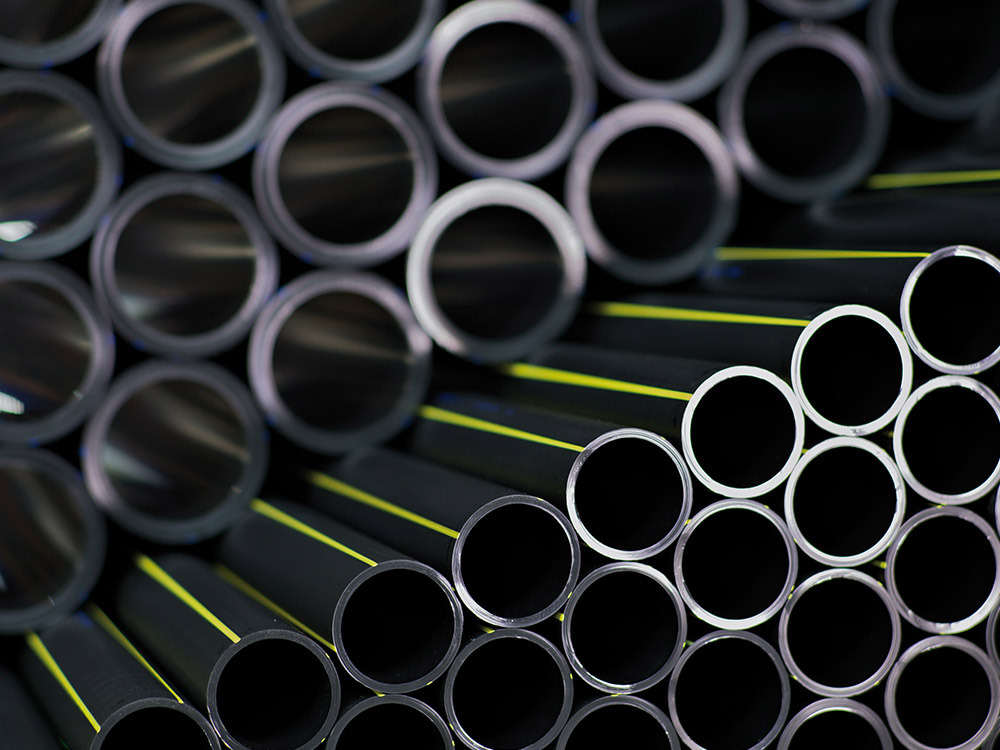
High-density polyethylene (HDPE) pipes play a critical role in industrial and municipal projects due to their unmatched durability and efficiency. These pipes resist corrosion, chemicals, and abrasion, making them ideal for harsh environments. Their flexibility simplifies installation in challenging terrains, while leak-free joints minimize water loss. With the global HDPE pipe market projected to reach $35.4 billion by 2032, their importance continues to grow. This blog identifies leading HDPE pipe providers, offering insights to help decision-makers select reliable suppliers for their specific project needs.
Key Takeaways
- HDPE pipes arestrong and bendable, perfect for many uses.
- They save money over time because they last 50-100 years.
- Picking a good HDPE pipe company means checking quality and help.
- HDPE pipes are eco-friendly since they can be recycled.
Overview of HDPE Pipes
Definition and Material Properties
HDPE pipes are made from high-density polyethylene, a thermoplastic polymer known for its exceptional strength and flexibility. These pipes exhibit remarkable durability, enabling them to withstand extreme environmental conditions, including high temperatures and prolonged exposure to sunlight. Their flexibility reduces the need for additional fittings during installation, making them a cost-effective solution. Furthermore, HDPE pipes resist a wide range of chemicals, making them suitable for aggressive environments like chemical plants and wastewater facilities.
| Property | Value |
|---|---|
| Tensile Strength | ~25 MPa |
| Elongation at Yield | 10%~15% |
| Modulus of Elasticity | ~1000 MPa |
| Glass Transition Temperature | ~-95°C |
| Melting Point | ~130°C |
| Service Temperature | -30 to 60°C |
| Dielectric Strength | 50 kV/mm |
| Impact Resistance | High |
| Water Absorption | <0.05% |
| Chemical Resistance | Resistant to most acids, alcohols, and bases |
Common Applications in Industrial and Municipal Projects
HDPE pipes serve a variety of purposes across industrial and municipal sectors:
- Potable Water: Transporting drinking water for urban and rural areas.
- Reclaimed Water: Diverting treated wastewater for agricultural and industrial use.
- Irrigation: Delivering water for large-scale agricultural systems.
- Sewage Transport: Moving wastewater in municipal infrastructure.
- Oil and Gas: Transmitting oil and gas and producing water.
- Mining: Handling process water and waste materials.
- Geothermal Energy: Circulating fluids in geothermal heating systems.
- Hydroelectric Dams: Supplying water to power generation facilities.
Key Advantages of HDPE Pipes
Durability and Long Lifespan
HDPE pipes are renowned for their longevity, with a life expectancy of 50 years. Studies have shown that these pipes can endure millions of pressure cycles without failure, simulating over a century of service. Their resistance to corrosion and oxidation ensures consistent performance, even in challenging environments.
- HDPE pipes resist rust, degradation, and chemical reactions.
- Their smooth inner walls enhance flow capacity, reducing energy costs.
- Flexible construction allows for easier installation and fewer repairs.
Environmental Benefits and Recyclability
HDPE pipes contribute to environmental sustainability through their low carbon footprint and recyclability. Their lightweight design reduces transportation emissions, while their long service life minimizes the need for frequent replacements. At the end of their lifecycle, HDPE pipes can be recycled into new products, supporting a circular economy.
- Collection and sorting of used HDPE pipes.
- Cleaning and removal of contaminants.
- Shredding into smaller pieces.
- Melting and reforming into new HDPE products.
Resistance to Corrosion and Chemicals
Unlike traditional metal pipes, HDPE pipes resist corrosion due to their chemically inert molecular structure. They withstand exposure to acids, bases, and salts, making them ideal for chemical processing and wastewater applications. This resistance ensures long-term reliability and reduces maintenance costs.
- Resistant to acids like hydrochloric and sulfuric acid.
- Withstands alkaline solutions such as sodium hydroxide.
- Maintains structural integrity in aggressive environmentsJIANGSHAN PLASTICS Industries
Overview of the company
Jiangsu Jiangshan Plastic Products Technology Co., LTD. (formerly known as Jiangyin Jiangshan Plastic Industry Co., LTD.) was established on April 12, 2006, in Wuxi, Jiangsu, China. At present, the registered capital of the company is 10.08 million yuan. The company covers an area of 20,000 square meters and has more than 160 employees, including 35 technical personnel. After nearly 20 years of rapid development, the company has become a professional producer of all kinds of PE, PP-R pipes, and accessories for private enterprises. So far, the company has established business relations with Europe, the United States, Southeast Asia, the Middle East, Africa, and other regions, with a number of retailers and agents, well received by the industry and customers.
Key product offerings
JIANGSHAN Plastics specializes in HDPE piping systems for drinking water, wastewater, and industrial applications. The company also offers converged equipment and field services to ensure seamless installation and maintenance. Its product portfolio includes pipes for agricultural irrigation systems, mining operations, and municipal infrastructure.
Unique selling point
Integrated solutions, including pipeline supply, converged equipment, and technical support.
With a strong focus on sustainability, products are designed to minimize environmental impact.

http://toyota-porte.ru/forums/index.php?autocom=gallery&req=si&img=3230
Good https://is.gd/tpjNyL
Awesome https://is.gd/N1ikS2
https://shorturl.fm/6539m
https://shorturl.fm/j3kEj
https://shorturl.fm/XIZGD
https://shorturl.fm/5JO3e
https://shorturl.fm/FIJkD